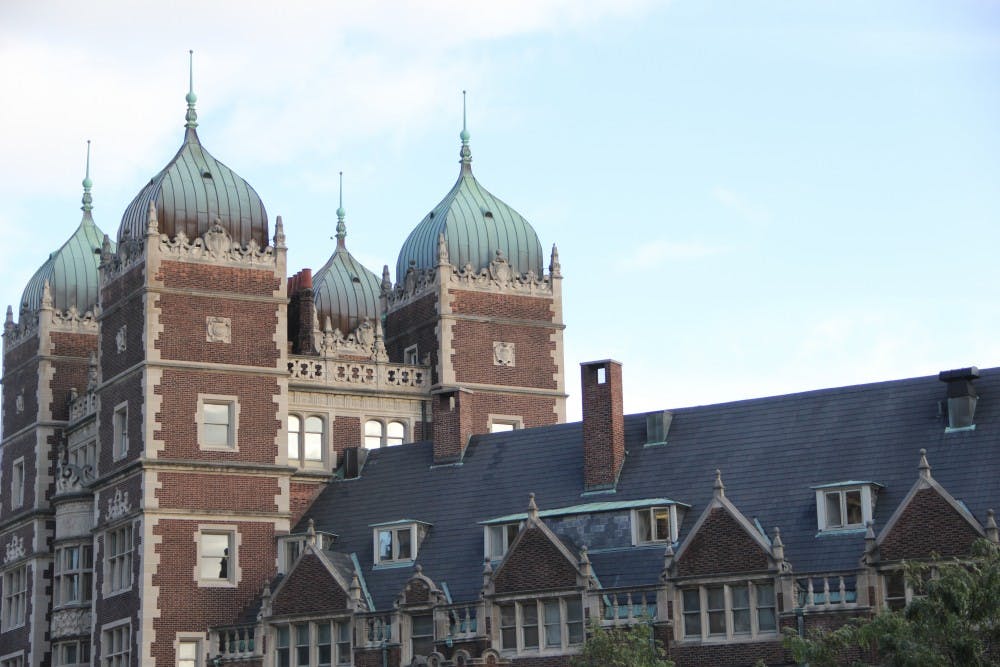
While all RAs and GAs must go through diversity training, many identifying as LGBTQ believe their identities have contributed to their sensitivity towards certain issues. | DP File Photo
The experience of being an LGBTQ resident advisor or graduate associate is much the same as the experiences of other RAs and GAs — but with a few marked differences. RAs and GAs who identify as LGBTQ say they’re sometimes able to understand their residents on a deeper level, but face certain challenges they wouldn’t have to face otherwise.
A number of RAs and GAs believe that their identities have allowed them to be more sensitive and receptive to certain issues.
Graduate School of Education student Dan Kent, who is a GA in Rodin, believes that identifying as queer has led him to be more tuned in to mental health issues. “Just from my lived experience as a gay male, I feel like I can read people better and see the tell-tale ‘signs’ that we’re supposed to look for. Not sure if other people would say that,” he said.
Along with some of the perceived advantages come difficulties. While most residents are immediately accepting, some who have never been in close contact with a queer person before may initially feel some discomfort, making it harder for an RA or GA to form connections with them, according to College junior Cody Smith, an RA in Ware.
Last year, there were some LGBTQ-related incidents in the Quad, said College senior Charles Carr, who was an RA in Ware last year and is now an RA in Rodin. Signs related to the LGBT Center, as well as a SafeZone sticker from a gay GA’s door, were ripped down.
Carr recounts a particular incident where he was woken up at 3 a.m. by a drunk freshman yelling, “‘I knew you were a faggot!” outside of his door.
“It wasn’t directed at me, but waking up to that was definitely really jarring. Needless to say, I reported that incident just because even though it wasn’t directed at me, I wanted them to know that it wasn’t okay to say that in any context,” Carr said.
Every RA and GA goes through diversity training. During the diversity training, house staffs break into groups to discuss what it means to be a community and to be diverse and to be integrated, according to College senior Eliana Yankelev, an RA in Ware.
“We broke down terms like ‘diversity’ and ‘inclusion’ and talked about how it’s really hard to have a truly diverse community, because just by saying ‘diverse,’ you become divisive — almost exclusionary. So we try to create a true sense of community and high standards for inclusion, and ask people to always have an open and understanding perspective,” Yankelev said.
In addition to diversity training, staff members have the option of going through SafeZone training, which is LGBTQ-specific. SafeZone training focuses on possible scenarios that RAs and GAs may find themselves in and educates them on how to respond. SafeZone training teaches RAs and GAs how to create comfortable spaces for people and how to be sensitive to residents’ needs, according to Nursing senior Ian Alexander, an RA in Fisher Hassenfeld.
Staff members who undergo SafeZone training then receive a sticker to display on their doors that lets residents know they should feel especially comfortable talking to their RAs or GAs about LGBTQ-specific concerns.
Particular considerations, such as when and how to come out to residents, also characterize the experience of being an LGBTQ-identifying RA or GA.
Alexander chooses to bring up the subject of his sexuality in casual conversation with his residents, while Carr chose to come out to his residents during his first hall meeting, when he and his residents were sharing proudest moments. “My motivation was to share something pretty personal in the hopes that they would feel more comfortable sharing things with me in the future,” Carr said. “So I said that my proudest moment was coming out to my brother because it was really difficult for me.”
Similarly, Yankelev came out to her residents during her first hall meeting and also invites her girlfriend to join in on hall activities. “Five years from now, I want my residents to be able to say, ‘Oh yeah, my freshman year RA was a lesbian and was always straightforward about it — it was never a point of contention. I learned how to be comfortable and see it as a normal thing, not even thinking twice about seeing two girls holding hands.’”
The Daily Pennsylvanian is an independent, student-run newspaper. Please consider making a donation to support the coverage that shapes the University. Your generosity ensures a future of strong journalism at Penn.
DonatePlease note All comments are eligible for publication in The Daily Pennsylvanian.




